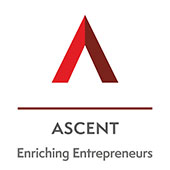Blog
The disruptive power of social sanctions
How does a dairy company succeed in selling fruits, vegetables and edible oils?
How can an industry leader in a saturated market increase its PBT by 5.5x within 3 years?
Previously, Mother Dairy believed themselves to be mainly a dairy co-operative who also had a fruits and vegetables and an edible oils division. As a result, their business was highly operations intensive with very low margins.
But is that all they were? A brand audit demonstrated that dairy was “what they did”, but nutrition was “who they were” in the minds of the customers.
This also provided a clear understanding of future diversifications that would succeed such as baby food, olive oil and even bread and categories to stay away from like chocolates and chips.
This was a social sanction that the customers would buy Mother dairy when it came to ‘sources of nutrition’. Therefore, fruits, vegetables, edible oils and recently bread, became a top priority. Shifting focus to these products resulted in building and achieving a business plan that was 3x bigger than what they had previously envisioned. Safal and Dhara contributed massively to the bottom line because of higher margins.
Restructuring around these new truths, results in disruptive growth. Why else is a watchmaker witnessing unprecedented success in specialty retailing and prescription eye wear?
Back in 2003, when business had stagnated and their share prices had crashed to INR 40, Titan decided to take a hard look at their largest asset vis a vis the TITAN brand. Surprisingly, consumers saw them not as watchmakers and jewelers, but designers and retailers.
Restructuring the entire business and it’s 5-year plan around “who they were” resulted in an 8x growth over their forecast period. Market value grew to 4200% over the next 4 years.
So why haven’t more companies been doing this?
‘Looking back’ is something we rarely associate with a high growth plan. It is not uncommon for businesses to get too focused on improving operations, too focused on daily tasks.
Social sanction is not what you do, but who you are.
Growth strategies based on “what you do” at its core have resulted in big failures for several large brands. Fine dining from McDonalds, coffee table furniture by Starbucks and frozen foods from Colgate to name a few.
On the other hand, expanding based on “who you are” has allowed businesses to succeed at seemingly unrelated categories.
Today, we buy clothing and shoes from a heavy machinery manufacturer (CAT), scotch tape from what used to be a mining company (3M), lawn mowers from a car manufacturer (Honda) and music from a soft drinks company (Coke studio).
Social sanctions already exist for your business.
A closer look at your why your customers really buy from you will unveil your next exponential growth strategy.
Wouldn’t you readily pay for hospitality by Vistara, a mobile from Tesla and a car from Apple?
– Co-authored by Tarun Chakraborty and Ramesh Jude Thomas on behalf of EQUiTOR Value Advisory


